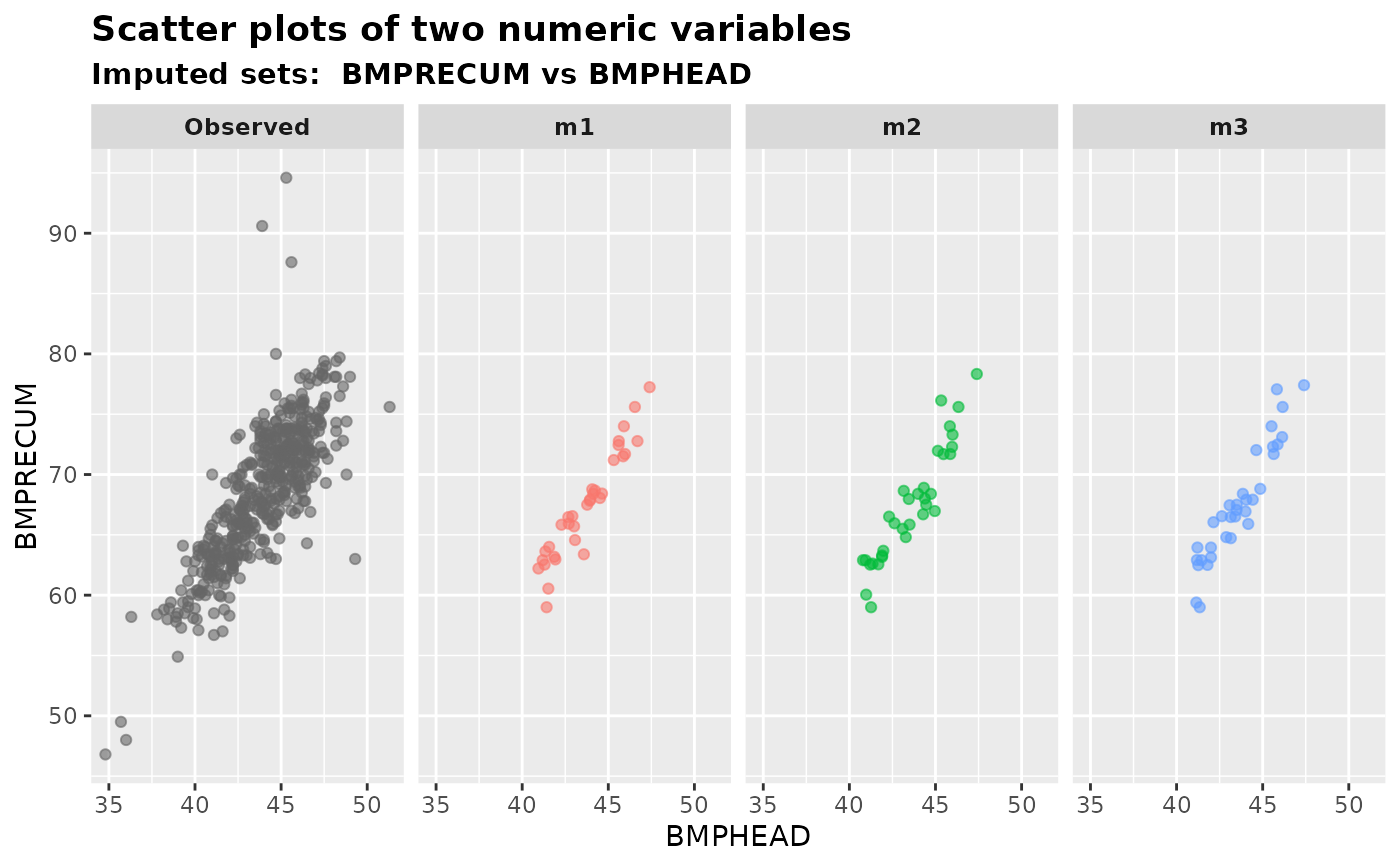Plot observed values versus m sets of imputed values for two specified numeric variables using ggplot2.
Usage
plot_2num(
imputation.list,
var.x,
var.y,
original.data,
true.data = NULL,
color.pal = NULL,
shape = FALSE
)Arguments
- imputation.list
A list of
mimputed datasets returned by themixgbimputer- var.x
A numeric variable on the x-axis
- var.y
A numeric variable on the y-axis
- original.data
The original data with missing data
- true.data
The true data without missing values. This is generally unknown in practice. If the true data is known (e.g., in cases where it is generated by simulation), it can be specified in this argument. The output will then have an extra panel called
MaskedTrue, which shows values originally observed but intentionally made missing.- color.pal
A vector of hex color codes for the observed and m sets of imputed values panels. The vector should be of length
m+1. Default: NULL (use "gray40" for the observed panel, use ggplot2 default colors for other panels.)- shape
Whether to plot shapes for different types of missing values. By default, this is set to FALSE to speed up plotting. We only recommend using `shape = TRUE` for small datasets.
Examples
# obtain m multiply datasets
params <- list(max_depth = 3, subsample = 0.8, nthread = 2)
imputed.data <- mixgb(data = nhanes3, m = 3, xgb.params = params, nrounds = 30)
# plot the multiply imputed values for variables "BMPRECUM" versus "BMPHEAD"
plot_2num(
imputation.list = imputed.data, var.x = "BMPHEAD", var.y = "BMPRECUM",
original.data = nhanes3
)
